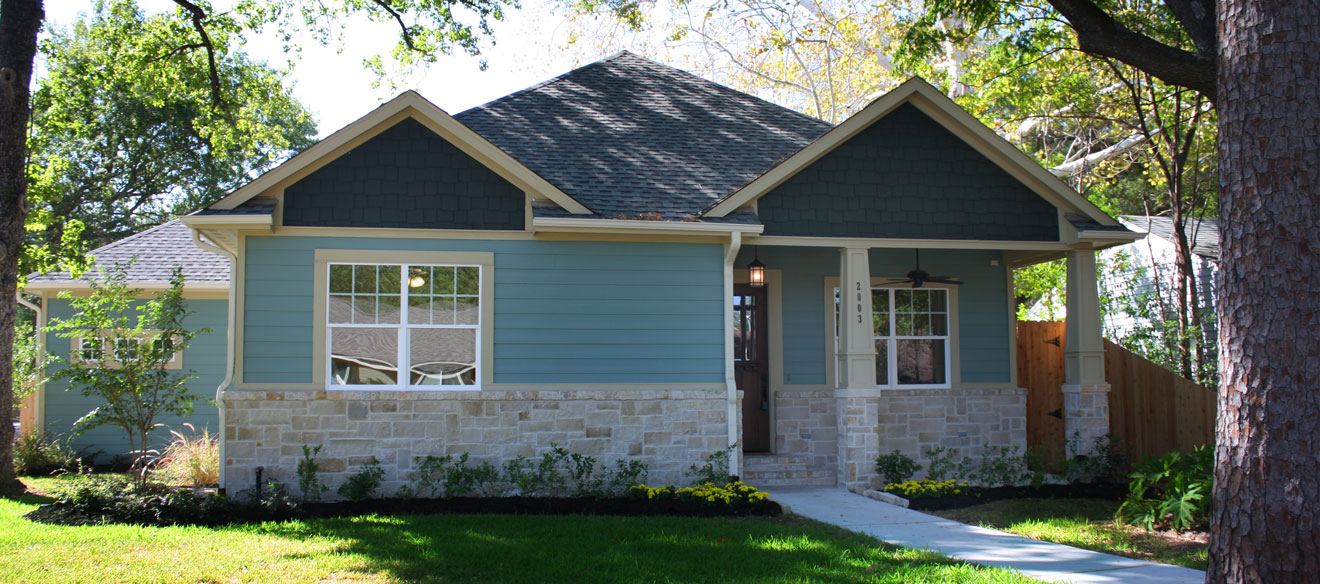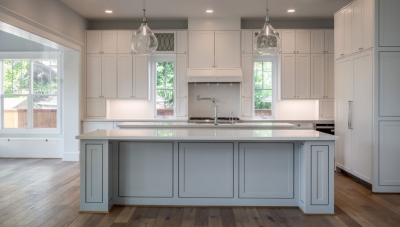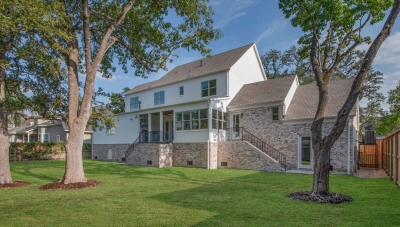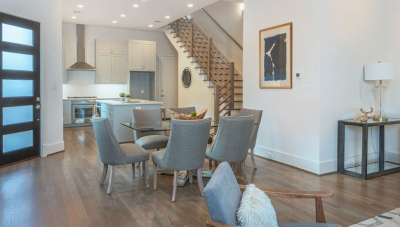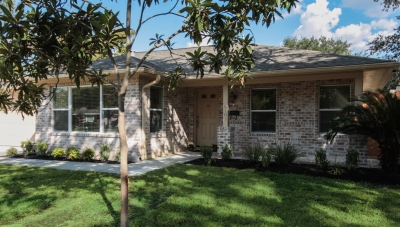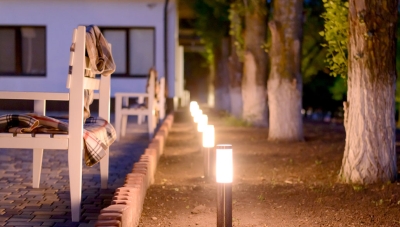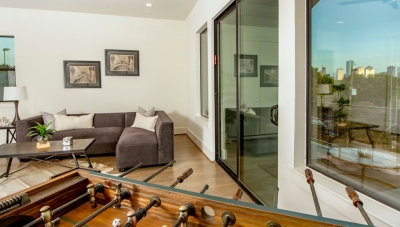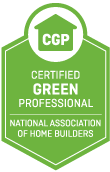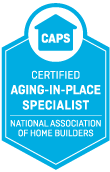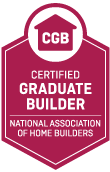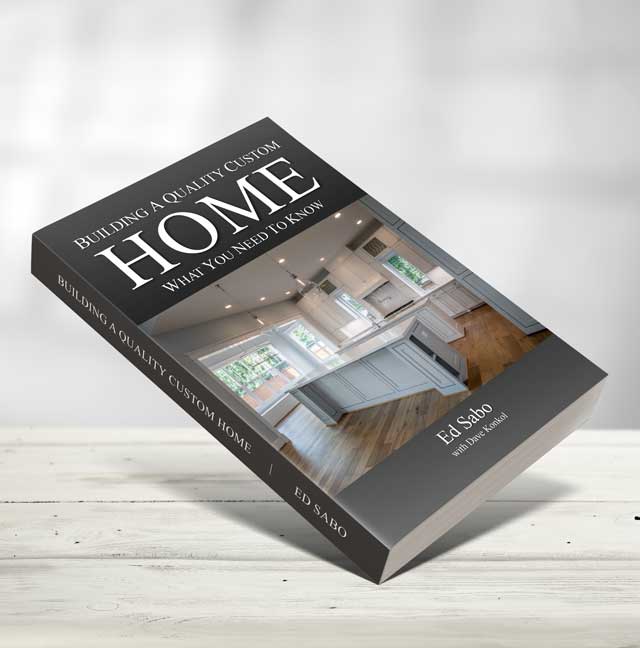We’ve come a long way in energy efficiency, but it can still be a challenge to make a pre-existing home use less energy. You likely need to modify or completely replace appliances, systems, and home features, which can cost you a good amount of money. In fact, to add high-performance elements to a 4,000-square foot home, homeowners can expect to pay about $30,000 to $50,000. That’s according to Toner Kersting, founder of TONER Home Matters, a building performance company that works closely with Sabo Custom Builders and is known as one of the best building performance minds in the Gulf Coast region.
And if you think fixing one thing in your home will make it energy efficient, Kersting has news for you: “It’s a whole-house approach, not a single item.”
The beauty of a custom home is that you have a blank slate to build the house you love and take a whole-house approach to energy efficiency as you build it.
When planning your custom home build, why should you consider building a house that helps you reduce your energy use? And how do you go about building that? Read on to have your questions answered.
What is an Energy-Efficient Home?
An energy-efficient home is a structure that’s designed and built to help you conserve energy. Also known as green homes or zero-energy homes, these houses have envelopes, systems, and features that allow you to use less energy without giving up your daily comforts.
Older homes are typically not energy-efficient homes. However, they can be remodeled and converted into ones that reduce energy use – but there are important things to consider.
“I love old homes because we have had time to understand how they perform historically,” says Kresting. “The most important thing to consider is how [the home] was meant to perform originally, how it was modified over the years, and how the new components will affect it. It’s a big historical math problem.”
While some people do love arithmetic, if you’re in the market for a new home and want to reduce your energy use the best way possible, you may want to consider building a high-performance custom home instead of making improvements to an older house.
Why Build an Energy-Efficient Home?
Along with the environmental benefits of owning an energy-efficient house, homeowners can feel good about doing their part to reduce their carbon footprint while also saving money on their energy bills. That includes their heating, cooling, electric, and water bills. According to the U.S. Department of Energy, the average U.S. family can lower their home utility bills by up to 25% by conserving more energy.
How to Build an Energy-Efficient Home
According to Kresting, location plays a role in building an energy-efficient home.
“Houston, as a whole, is the most difficult place to build in. Chasing energy efficiency is not what we do in a hot, humid climate zone. [Instead], we focus on resiliency in our designs. If that’s done well, then the byproduct is energy efficiency.”
Along with a focus on resiliency, other important steps are taken throughout the building process. Here’s what you can expect when you build your energy-efficient home with Sabo Custom Builders:
Step 1: Meet with Your Builder
This important first step ensures that your goals, ideas, expectations, timeline, and budget are aligned. During this time, you’ll meet with owner Ed Sabo to discuss your energy efficiency goals and make recommendations based on the information you provide. This initial meeting will help you decide whether we’re the right fit for your project. You’ll also learn more about our company and philosophy.
Step 2: Plan Your Build with Energy-Efficient Home Plans
You’ll work with interior and architectural designers, engineers, a building-performance designer, and other consultants as we plan your design and price your project. Using recommendations from the professional design team, your input, and historical data, we will create your energy-efficient home plan.
When it comes to building an energy-efficient home, there are additional things to consider when it comes to your build, including using energy-efficient home building materials and ensuring we insulate and seal the home properly to eradicate air infiltration.
Energy-Efficient Home Plans
Along with building a home that meets your needs and vision, we will design a home that saves energy and helps decrease your carbon footprint. To do this, your plan may include:
- Building envelope design
- Upgraded windows
- Energy Star glass and appliances
- Energy-efficient HVAC systems and tankless water heaters
- Foam insulation
- A conditioned attic, one of the spaces in a home where most air leaks occur
- Insulated headers
- Foam band boards to eliminate air infiltration
During this step, we will guide you through these eco-friendly considerations and other important decisions.
From making plans to building your home, we take the steps needed to ensure we meet the standards needed to earn a low Home Energy Rating System (HERS) Index Score – the lower, the better. This score measures and evaluates the energy efficiency of a home. The first step in getting this score involves having an independent energy consultant evaluate your drawings early in the process (well before the permitting phase) and use the energy models to design the building envelope and the systems within the home to meet your energy usage and comfort goals.
Once the plans are in place, we go to the next step, building your energy-efficient home.
Step 3: Build Your Home
In the most exciting step of the building process, your vision becomes a reality as we build your custom, eco-friendly house. Each day of the build, a project manager will visit the job site and provide updates on the project. Our team will work with the building-performance designer to provide the required energy certification and validate that everything was properly installed, that there are no air leaks, and that we don’t just meet code, but exceed it.
Energy Efficient Home Building Materials and Practices
One of the biggest ways to conserve energy is to ensure that outside air doesn't enter your home. We live in a hot, humid climate, so any air coming into the building envelope could cause moisture in the walls, which could lead to mold. Air leaks can also cause your HVAC to work extra hard to regulate the temperature if cold air is escaping or hot air is coming into the home. There are several steps we take to eliminate air leaks.
For the building envelope, we use Tamlyn or Huber zip-system products, which help create tight, durable, and dry building enclosures that block water and air from entering or escaping the house. On new construction homes, the building-performance designer reviews our weather barrier to confirm it was installed to the manufacturer’s specifications. They also perform a blower door test to ensure that our new homes do not have excessive air leaks on the building envelope.
For maximum comfort and efficiency, we use foam to insulate the home and attic. When the insulation is being installed, the HERS certifier will inspect the home to ensure it’s done properly.
We also use a spray foam sealant around doors, walls, and windows, where air leaks can be common. And speaking of windows, we use double pane windows made with Energy Star glass to keep the home’s temperature regulated by reducing the heat from the sun without taking away the natural light it provides. We use a third-party, such as Toner Home Matters, to oversee and certify the installation of these products.
In the majority of our homes, we install tankless water heaters and high-efficiency HVAC systems, which use less energy and can reduce your monthly utility bills. And to help ensure your HVAC is not wasting any energy, we also perform duct blaster tests to make sure the home’s ducts do not leak air.
Once the home build is complete, the HERS certifier will come back a second time to inspect the home and test for air leaks and energy efficiency. From there, the certifier will give the home a HERS Index score.
Meeting Your Expectations
Along with making sure the home is energy efficient, we also ensure each custom feature meets your expectations. While we build your home, you’ll have access to our unique client portal. There, you can make changes to your selections, access your documents, review job logs and progress photos, and communicate with your project manager.
Energy-Efficient Home Builders
When you’re ready to build on your lot, shop around for the right custom home builder in Houston. According to Kresting, this is one of the most important parts of your build.
“Start with the right team that doesn’t skip over the building performance factors just to stay in budget or to allow for frivolous spends on items that aren’t permanent,” he says.
You’ll also want to make sure the builder you choose is experienced and one you trust and enjoy working with. You’ll also want to work with a builder who knows the area, its climate, environmental factors, and other things that can affect how the home performs.
Sabo Custom Builders – Your Energy-Efficient Builder
If you’re planning on building a home in Houston, consider Sabo Custom Builders for your project. We are a Certified Green Professional (CGP), trained in green building methods and equipped with the tools to provide green building solutions to our customers. More importantly, we include these sustainable building practices without hiking up building costs.
We build custom, energy-efficient houses in West Houston and the inner loop. To learn more about the neighborhoods we service, check out our list of where we build.
We’re proud to build homes that help conserve energy, reduce carbon footprint and save homeowners money on their energy costs. Most of all, we’re proud of the relationships we’ve built with our clients. To learn more about their experience working with us, check out their reviews of their experience.
When you’re ready to build a custom home that uses less energy and helps you save money each month, we’re ready to help your dream home become a reality. Contact us to get started on your project today.

